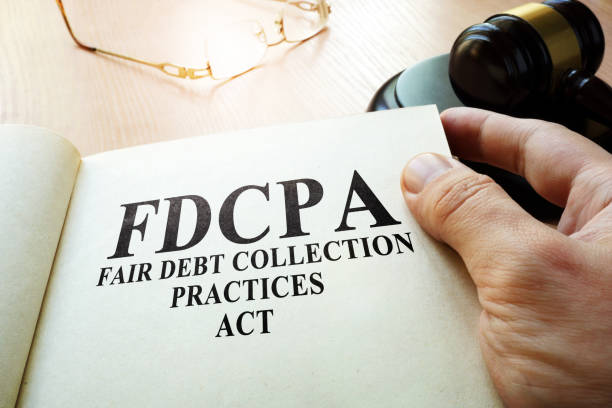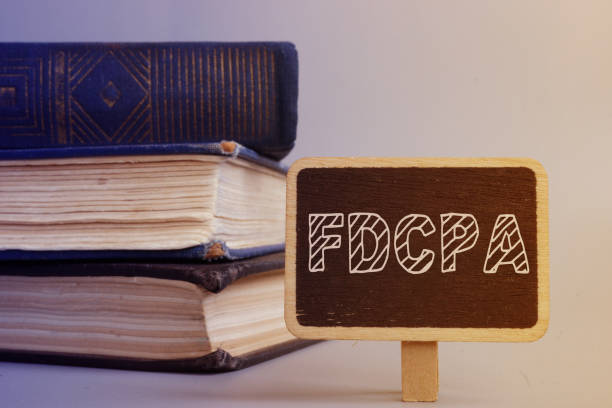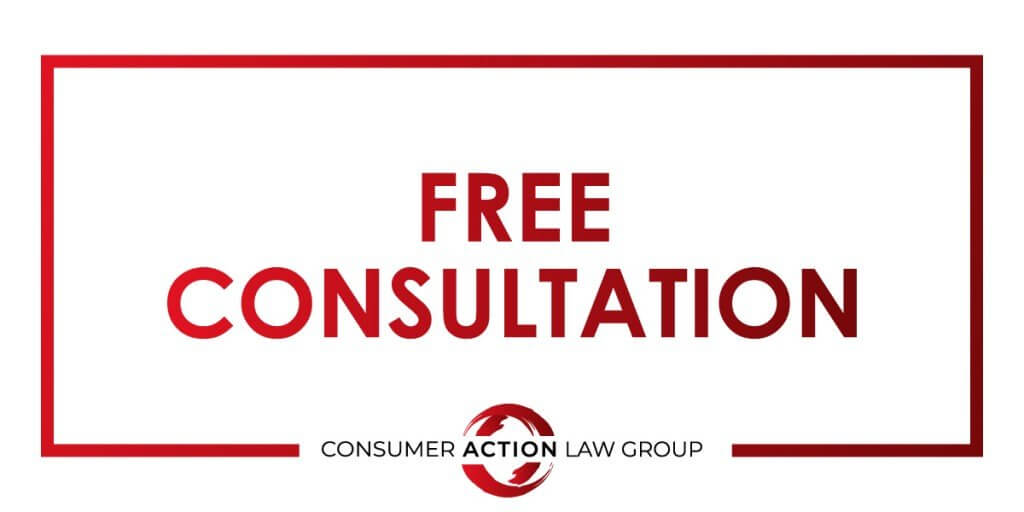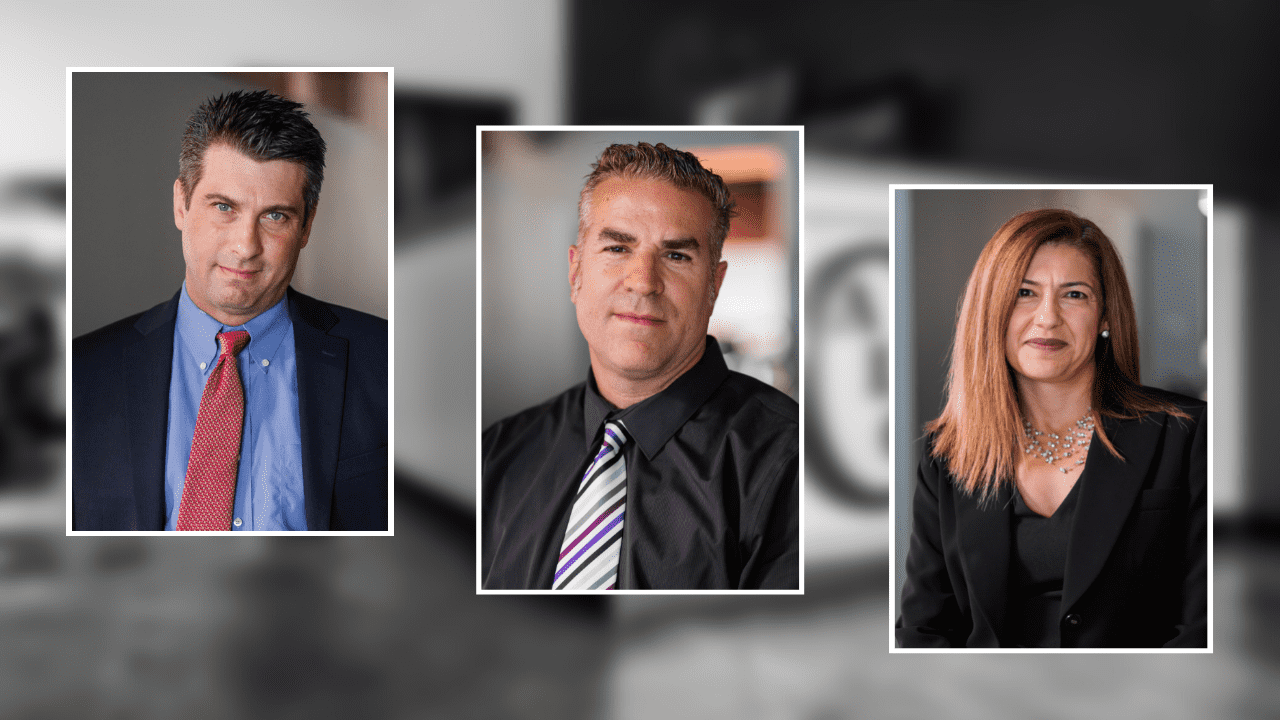Debt Collector Dispute Lawyers
Are you being harassed and annoyed by debt collectors? Get help today!
We Can Help You:
- Understand your rights under the Fair Debt Collection Practices Act.
- Represent you in court if you are being sued by collectors.
- Protect yourself from predatory debt collectors.
- Stop debt collectors’ harassment, lies, or threats.
- Get creditors to stop calling you at work.
- Sue collectors if they have violated your rights.
- Recover money from bill collectors that harass you, lie to you, or threaten you.
If debt collectors are giving you annoying calls, talk to our debt collector dispute lawyers today for a possible FDCPA lawsuit. Call (818) 254-8413. The consultation is free!

Fair Debt Collection Practices Act
The Fair Debt Collection Practices Act, or FDCPA, was passed in 1978 by Congress due to an abundance of deceptive, unfair, and abusive debt collection practices. They passed this legislation to protect consumers from being harassed by debt collectors. The FDCPA requires debt collectors to do the following things:
- Identify themselves during every communication as a debt collector and let you know that they are attempting to collect a debt.
- Send you written notice within five days of first contacting you that tells you how much you owe, to whom, and what action you can take if you don’t believe that you owe the money.
- Provide written verification of the debt within 30 days if you ask for it.
The FDCPA sets limits on what creditors cannot do when it comes to collecting a debt. It also provides consumers with the right to sue debt collectors if they are being harassed by their creditors.
How do you know if your creditors are violating the FDCPA? The best way to be sure is to talk to an experienced FDCPA lawyer.
Here are some things that could be a violation of the FDCPA. If debt collectors are engaged in any of the following practices, it is a good idea to contact an attorney right away.
- Calling you at all hours – Under the FDCPA, a debt collector is not permitted to contact consumers before 8 AM or after 9 PM.
- Telling others about your debt – A debt collector can call others to ask where you live or ask for your phone number. However, they cannot tell the person that they are calling from a debt collection agency. Also, they can usually call just once, but there are a couple of exceptions to this rule. They can discuss your debt with your wife, attorney, or parents/guardian if you are a minor.
- Harassing you at work – Third-party debt collectors cannot call your work repeatedly after you tell them to stop. Simply tell them that your employer does not approve of them calling you at work. If they keep calling, they could be violating the FDCPA.
- Lying to you to try to collect a debt – A collector cannot lie to you to collect a debt. A good example of this is a collector telling you that they are an “investigator” when they are not.
- Trying to collect a debt that is not yours – If you are getting calls about debt and you don’t believe that it is yours, tell the collector to stop calling you.
- Saying that you will be arrested or go to jail if you do not pay – The government outlawed debtor’s prisons back in the 1800s, yet bill collectors still try to use the threat of sending people to jail over debt. However, these threats are against the FDCPA. You cannot be imprisoned for failing to pay a consumer debt, such as a credit card, hospital bill, or car loan.
- Threatening to garnish your wages without a judgment – The only way that a creditor can take money from your paycheck for debt is through a court order. Unless they go to court to receive a wage garnishment, they can’t take money from your paycheck.
- Threatening to take your car, house or any other property – There are only a few instances in which a creditor can take your assets to pay off debt. If the asset was used as collateral to back the loan, they could seize it. For example, a creditor can repossess your car if it was used to secure the loan. Another instance will be if the creditor has a court order or judgment to seize your assets. If a creditor is threatening to take your assets otherwise, it could be grounds for an FDCPA violation.
- Using abusive language or profanity – If a debt collector crosses the line and uses profane language, yells at you, or tries to humiliate you, you may have grounds for a lawsuit.
- Calling you repeatedly – Although federal law doesn’t limit how many times a collector can call you, if they are calling too much, you have the right to tell them to stop calling you. If they keep repeatedly calling after you tell them to stop, this is a violation of the FDCPA.
- Threatening to use violence if you do not pay the debt – This is more common than you would think. According to the Federal Trade Commission, in 2010, more than 4,100 people complained of debt collectors threatening physical violence to try to collect a debt. Using threats of violence or harm to collect a debt is against federal law.
- Asking you to pay interest or fees not allowed by statute – Debt collectors are only allowed to charge the amount of interest on debts that were agreed to in the initial contract for the debt or the amount expressly permitted by law. They cannot artificially inflate the amount that you owe just because they want to; however, many try to do this very thing.
- Continuing to attempt to collect the debt after you have sent a cease communication notice – If you send a collector a written cease communication notice, they must stop calling you.
- Failing to provide you with a fair debt collection practices act notice – They must send you proper notice of your rights under the FDCPA.
- Contacting you if you have a lawyer – Once you hire an attorney to represent you against FDCPA violations, debt collectors cannot contact you anymore. All communication has to go through your lawyer.
This is just a list of potential violations; it is not exclusive. There are many other ways that creditors violate the FDCPA. If you believe that a bill collector is harassing you, then your best bet is to get in touch with an FDCPA lawyer who is experienced with this law. They can tell you, in your particular situation, if a debt collector might be violating the FDCPA.
Unfair Debt Collection
If you are getting harassing phone calls from debt collectors, don’t just ignore it. Creditors don’t have the right to threaten, demean, or verbally abuse debtors. If they are doing this to you, then you might be the victim of unfair debt collection. You will need an attorney experienced in consumer rights debt collection to help enforce your rights.
Debt Collection Letter
Sometimes, collectors violate the Fair Debt Collection Practice Act by sending collection letters. Here are several examples of debt collection letters that may violate the FDCPA:
- Language on the envelope that indicates that the letter is from a debt collector,
- Initial demand letters that ask for payment in less than 30 days,
- Letters that threaten prosecution or arrest for failure to pay the debt, or
- Failure to provide consumer notices.
These are just a few examples of debt collection letters that violate the FDCPA. If you have received a letter and you believe that it might break the law, call (818) 254-8413 to get in in touch with an attorney.
Medical Debt Collection
Medical debt can spell disaster for almost anyone. All that it takes is one serious medical problem to rack up thousands upon thousands of dollars in medical debt.
If you don’t pay the bills, the hospitals and doctors will send the bill to medical debt collectors. Fortunately, there are laws that protect consumers when it comes to medical debt collections. The FDCPA also safeguards against abuse and harassment from medical debt collectors.
If medical debt collectors are doing any of the following things, you might have grounds to file a lawsuit:
- Sending letters to your friends and family about your medical debt,
- Sending harassing letters threatening to sue you when they have no intention of following through,
- Threatening to have you arrested if you do not pay your medical bills,
- Refusing to provide proof that the debt is yours,
- Trying to collect money from you for someone else’s medical debt, or
- Attempting to collect money for a medical debt that was already discharged in bankruptcy.
Commercial Debt Collection
The Federal Debt Collection Practices Act does not apply to the collection of debt incurred for business purposes. So, if you incurred debt to fund business or agriculture, the FDCPA will not apply to debt collection, according to the Federal Reserve. Check out this link for more information.
If you are being harassed by creditors for a business or corporate debt, you have options. You can contact an attorney to help you negotiate with creditors or restructure your business debts. By doing this, you may be able to work out a payment plan or even eliminate a portion of your debt. This can help your business get back on track.
Debt Collectors Act
The Fair Debt Collections Practice Act protects you from unscrupulous debt collectors. It is against the law for collectors to harass, threaten, being dishonest or misleading. Many creditors and debt collectors violate the FDCPA to collect on a debt. They believe that consumers either don’t know the law or won’t enforce their rights. However, working with an attorney can help you put a stop to harassment and illegal debt collection practices. Learn what options you have if you are the victim of dishonest debt collectors.

FDCPA Violations
It is important to understand that if you are being harassed or threatened by debt collectors, you have rights. Federal third-party debt collection laws allow consumers who are victims of debt collector unfair practices to recover cash compensation from collectors. Here are some of the damages that you may be able to recover in an FDCPA lawsuit:
- Statutory damages – If you can prove that the debt collector violated the FDCPA, you can recover up to $1,000 in damages.
- Damages for emotional distress – Examples of emotional distress might include experiencing extreme anxiety or sadness after being humiliated by a debt collector or stress from receiving harassing telephone calls.
- Physical Distress – You might be able to receive compensation if you experienced physical problems as a result of harassment from collectors. If your sleep was interrupted and it negatively affected your health because collectors were calling you at all hours of the night, then you might be eligible to receive cash compensation.
- Lost wages – If your employer fires you because a debt collector calls your work relentlessly after you have told them to stop, you might be able to recover money for lost wages.
- Attorney fees and court costs – If you prove that the creditor or bill collector violated the FDCPA, the court may allow you to recover all of your lawyer’s fees and court costs. You will not have to pay a dime for suing debt collectors if you win.
As you can see, you have a lot to gain by suing debt collectors that harass, threaten, or lie to you. An experienced FDCPA violation attorney can best represent your interests when it comes to fighting debt collectors.
Talk to Our FDCPA Lawyers for Free!
Are you are the victim of unfair collections? Do you want to fight back against untruthful debt collectors? Beat your creditors at their own game. Turn the tables on them so that they have to pay you, and our FDCPA lawyers can help you do just that.
To get in touch with an experienced lawyer about debt collection agency harassment, reach out to us at (818) 254-8413.
The consultation is free!











